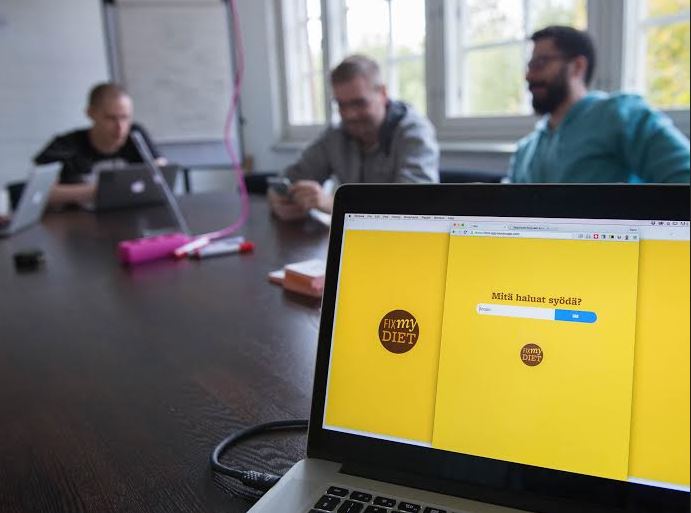Why Nordic IT companies like remote working tools

In the startup world, teams who work remotely are quite common. Even now, however, when setting up a new team, the same questions frequently arise: is it really possible to work together without physically being in the same location? How can you do so effectively with little face-to-face interaction? What are some of the common risks that should be taken into account with remote collaboration? I talked with Antti Akonniemi the founder of Kisko Labs, Finland, about remote working tools.
“At the outset, there are founders or co-founders who come up with a business idea, a vision, and then they assemble a team to execute the idea. The new startup company needs to clearly define and share the common purpose and goals with all team members. In other words, companies must ensure that everybody is in the same boat, rowing together towards the same destination,” says Akonniemi.
In the past, companies would often frame a printed mission statement and hang it in a place easily visible for all team members. People felt engaged when they were told why and how the company’s purpose and goals were in their own and the team’s best interest. Often these basic values would be intoned and repeated in annual general meetings or when a long-time employee retired. And in the days of loyal, one-company careers, this often sufficed.
He adds, “Much ink has been spilled about Generation X and the Millennials search for “meaningful work”; to them, this means a paycheck is not enough. Mission matters and they want to be engaged in its definition and its fulfillment. In our rapidly evolving digital age, a formal, top-down approach no longer fits the bill. A more interactive approach must be instituted.”
Lack of formalism does not mean no structure
The lack of formalism does not mean there should be no mission or structure! But we must recognize that communication has become more casual, fluid, and instantaneous – thanks in part to technology, especially with the advent of adapted collaboration tools. It has become possible to discuss and explore a company’s purpose and goals with team members on an ongoing basis in real time, with instantaneous feedback, even in the most complex matrix environment. A combination of both informal and scheduled, guided conversation allows team members to comprehend and buy into the underlying principles organically in a manner better suited to the startup world’s flattened, more democratic hierarchy.
“Even so, founders and executives must lead by example, ensuring careful consideration of a team member’s suggestions, promoting sharing, and actively listening. These actions help build trust and mutual respect within a team. Team members feel valued, and the resulting enthusiasm and engagement benefit the entire group effort”, says Akonniemi.
Encouraging personal development within a team
Startup leaders know that with often limited capital and skeleton crews, they must encourage the development and contributions of each team member’s unique talents and personal strengths. One team member can often see opportunities and threats that his or her fellow team members cannot. Encouraging involvement means that team members should each understand their individual responsibility for their role in the whole team’s success. And they must be empowered to make real, actionable suggestions and contributions.
“The decision of Buffer to give up the physical office influenced Kisko Lab’s culture a lot,” emphasizes Akonniemi.
“In spite of the fact that we have not followed their advice 100% yet, we are trying to use remote philosophy as much as possible. For everyday communication we are using Flowdock, which is similar to Slack. For internal communication we have given up email and Skype, we use the phone as little as possible. We mainly need the office simply to have workshops with our clients. One of the biggest advantage that we see is that we have reduced the need for meetings and there is much less info noise because all the important data is kept in written form”
“Actually what has happened is that there is rather a significant increase of the quality of info. Nobody is interested in creating noise in the team chat room, they are only focused on one thing: their work. Since we are all humans, we have covered the ‘water cooler’with a Flowdock room that is the only for non work related chat. Even when no one is required to come to the office everyday, most people still show up there just to be around people or to have a quick game of table hockey.”
Teams must have an identity
Each team has its own identity and needs to be analyzed separately considering many factors. We hope the above fundamental principles will serve as a guide towards building an effective remote team. Enjoy working together, learning together, achieving together—and let’s not forget: having fun!





Nice read Kisko Labs! At Leadfeeder in Helsinki we’ve also discovered that working remotely has resulted in many of the benefits we identified when making the big decision on whether to go remote. The challenges have in fact been fewer than we imagined. Our reasoning here https://www.leadfeeder.com/blog/2016/5-powerful-reasons-Leadfeeder-is-committing-to-remote-work-and-what-it-means-for-your-startup/